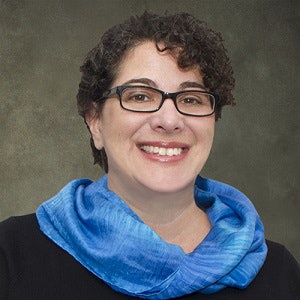 Lori Catallozzi
Lori CatallozziRecognizing a need to better serve part-time students, Bunker Hill Community College—located in Boston—enhanced its Learning Communities program over the years in order to achieve more equitable student outcomes.
A new Center for American Progress (CAP) report titled, “A Promising Model to Boost Retention for Part-Time Students” finds that as a result of BHCC’s various learning communities, part-time, first-year students are seven percent more likely than other part-time students to remain enrolled in the college after a year.
Many part-time students at BHCC are students of color and their participation in the learning communities also show a “significant association” to their continued enrollment that was not evident for White students, institutional researchers found.
Bunker Hill’s “results so far should be enough to inspire other community colleges and four-year institutions to think about the potential of learning communities — or elements of them, such as peer mentoring and success coaching — to help improve the odds part-time students face,” wrote Marcella Bombardieri, author of the report and senior policy analyst of Postsecondary Education Policy at CAP.
Arlene Vallie, director of Learning Communities at BHCC, said the expanded effort to serve part-time students is guided by support from Achieving the Dream, a nonprofit that champions the use of data in institutional reform efforts around student success.
With more funding and resources, roughly 4,700 BHCC students during the 2017-18 academic year participated in the three types of learning communities offered at BHCC – Learning Community Seminars, Learning Community Clusters and Professional Studies Learning Community Seminars. Additionally, BHCC increased the number of success coaches available to help students from two to 12.
All professional studies students and other students taking nine credits or more are required to take a learning community course during their first year. Following the CAP report’s data, college leaders plan to consider expanding the learning community requirement to students taking fewer than nine credits and students in certificate programs.
Lori Catallozzi, dean of Humanities and Learning Communities at BHCC, said bringing support services to students in the learning communities is critical, especially for part-time students who may not spend much time on campus outside of class due to work, family or other responsibilities.
If mentoring, advising, career planning and other meaningful ways of engaging students is going to happen, “it’s going to happen in the classroom,” Catallozzi said of the learning communities.
Topics discussed in the Learning Community Seminars reflect the lived experiences of the demographic of students attending BHCC. There are seminars on gender, identity, culture, parenting while being a student, behavioral science and the global economy, among others.
Part-time students – 65 percent of BHCC’s student population – benefitted from the support of a trained student mentor and a success coach in the seminars who helped with finding resources, tutoring, housing if necessary and education and career mapping.
First-year, part-time students who took a seminar in fall 2015 and those who took one in fall 2017 both were 15 percentage points more likely to persist into the following spring semester than those who did not take a seminar, the report said. In addition, BHCC leaders saw an increase in retention to the next fall for students who took seminars.
BHCC’s Professional Studies Learning Community Seminar had mixed outcomes results, as leaders said that some of the courses “have yet to find their groove in an active-learning seminar format.”
New part-time students’ participation in the Learning Community Clusters led to a six to nine percentage point gain in persistence and retention outcomes although the gains were not comparable to outcomes of part-time students in the seminars, the report found. This led BHCC leaders to experiment with peer mentoring, tutoring and success coaching in the cluster classes as well.
Catallozzi added that the course clusters are a “co-requisite” model that combines the core skills, competencies and learning outcomes of developmental and college-level courses, saving part-time students time to complete their degrees.
Researchers conducting qualitative and quantitative studies on the impact of the learning communities noted that they have their successes, but that more work needs to be done to support students. Vallie said Bunker Hill’s next steps to support students will be driven by the data on their outcomes.
“We are ready to further scale and continuously improve the program,” Catallozzi said. “It’s a great moment for Learning Communities at Bunker Hill.”
Tiffany Pennamon can be reached at [email protected]. You can follow her on Twitter @tiffanypennamon.















